A bill of sale is a crucial document when purchasing a vehicle. This age-old document has been utilized for centuries to secure transactions of goods such as cars, boats, horses, and more. When it comes to vehicles, a bill of sale form serves as proof of sale and is often the most important document for both buyer and seller.
The bill of sale template provides details such as the item sold, name of the seller, date of sale, and consideration received, establishing a clear record of the transaction.
Table of Contents
What is a Bill of Sale?

A bill of sale is a legal document that serves as proof of transfer of ownership of an item, usually a personal property, from the seller to the buyer in exchange for payment. It specifies the details of the transaction, including the date and the item sold, and is often used in private sales or to transfer ownership of items such as vehicles, firearms, or boats. The bill of sale provides evidence of the transfer of ownership and can be used as evidence in court in case of disputes.
Bill of Sale Templates
Bill of Sale Templates are legal documents used to facilitate the transfer of ownership of personal property from a seller to a buyer. These templates provide a standardized format for documenting the details of the transaction, ensuring both parties have a clear record of the sale. Bill of Sale Templates are commonly used in various transactions, including the sale of vehicles, boats, equipment, furniture, electronics, and other valuable items.
Bill of Sale Templates can be customized to fit specific legal requirements, state regulations, or industry standards. They can be designed as printable documents, digital forms, or integrated into online platforms. By utilizing Bill of Sale Templates, both buyers and sellers can ensure a smooth and transparent transfer of property ownership, protect their legal rights, and establish a clear record of the transaction. These templates serve as essential documentation for both parties and can be used as evidence of ownership during future transactions or legal proceedings.
When Should You Use a Bill of Sale?
A bill of sale should be used when transferring ownership of an item, especially valuable personal property such as a vehicle, firearm, boat, or valuable collectible. It is also recommended for private sales, especially when the item being sold is expensive, to protect both the buyer and the seller by documenting the terms of the sale.
Additionally, a bill of sale may be required by law in certain transactions, such as the transfer of a vehicle, to complete the ownership transfer process. In summary, using a bill of sale can provide evidence of ownership transfer and protect both parties in a transaction.
What are the Parts of a Bill of Sale ?
A bill of sale typically includes the following parts:
Date of sale: The date the transaction took place.
Description of the item: A detailed description of the item being sold, including make, model, serial number, and other identifying features.
Sale price: The amount of money or valuable property exchanged for the item.
Names and signatures of buyer and seller: The full legal names of both the buyer and the seller, along with their signatures.
Payment method: The method of payment used for the transaction, such as cash, check, or money order.
Warranty information: A statement about any warranty on the item being sold, such as “as is” or “with all faults”.
Conditions of sale: Any conditions of the sale, such as delivery arrangements or contingencies.
Notarization (optional): A notary public may be present to witness the signatures of both parties and certify the document, especially in the case of important transactions.
Having these parts in a bill of sale can help ensure that the transaction is well documented and protects the rights of both parties involved.
Quitclaim Bill of Sale
A quitclaim bill of sale is a legal document that transfers ownership of an item from one person (the grantor) to another person (the grantee) without any warranties or guarantees about the item’s condition or title. This type of bill of sale is commonly used in informal sales, such as transferring ownership of personal property like household items or gifts.
The grantor is not responsible for any defects or problems with the item after the transfer of ownership, and the grantee assumes all risks associated with the item. It is important to note that a quitclaim bill of sale does not transfer any liens or encumbrances associated with the item and is not recommended for items with a significant value or for transactions that require a clear title.
Vehicle Bill of Sale
A vehicle bill of sale is a legal document used to transfer ownership of a motor vehicle from a seller to a buyer. It specifies the terms of the sale, including the date, description of the vehicle, sale price, and the names and signatures of both the buyer and seller. A vehicle bill of sale is usually required by the Department of Motor Vehicles (DMV) to complete the transfer of ownership and obtain a new title in the buyer’s name.
In addition to the basic information, a vehicle bill of sale may also include information such as the vehicle’s make, model, year, VIN number, odometer reading, and any warranties or conditions of the sale. It is important to have a properly executed vehicle bill of sale to protect both the buyer and the seller in the transaction and to ensure a smooth transfer of ownership.
What is the Difference Between a Bill of Sale and Sales Contract?
A bill of sale and a sales contract are two different legal documents that are used in a sale transaction.
A bill of sale is a simple document that serves as proof of transfer of ownership of an item, usually personal property, from the seller to the buyer in exchange for payment. It provides basic information about the transaction, including the date, description of the item, sale price, and the names and signatures of both the buyer and seller.
A sales contract, on the other hand, is a more comprehensive document that outlines the terms and conditions of the sale. It includes information about the item being sold, the sale price, payment terms, delivery arrangements, warranties, and any other details or contingencies of the sale. A sales contract serves as a binding agreement between the buyer and the seller and is commonly used in more complex or high-value sales transactions.
In summary, a bill of sale is a simple proof of transfer of ownership, while a sales contract is a detailed agreement outlining the terms of the sale.
How Can I Write a Bill of Sale?
Determine the purpose of the bill of sale: Make sure you understand the reason for the sale and what information needs to be included in the bill of sale.
Gather the necessary information: Collect information about the item being sold, such as its make, model, year, serial number, and any other identifying information. Also, gather the names and addresses of the buyer and seller.
Choose a format: There are many templates and forms available for bills of sale, both online and in office supply stores. Choose one that is appropriate for your needs, or create your own.
Fill in the details: Use the information you have gathered to fill in the details of the bill of sale. This should include the date of the sale, description of the item, sale price, and the names and signatures of both the buyer and the seller.
Include any additional information: Depending on the item being sold, you may want to include additional information, such as warranty information, payment terms, or conditions of the sale.
Have the bill of sale reviewed and signed: Once the bill of sale is complete, have it reviewed by an attorney or other legal professional, especially if the item being sold is of significant value. Then, have both the buyer and the seller sign the bill of sale.
Make copies: Make sure to make copies of the signed bill of sale for both the buyer and the seller, as well as any other parties involved.
FAQs
Do I need a bill of sale for every sale?
A bill of sale is typically only required for significant sales, such as the sale of a vehicle or real estate property. It is not necessary for all sales, such as the sale of smaller personal items.
Can I write a bill of sale myself?
Yes, you can write a bill of sale yourself, but it is always a good idea to have it reviewed by a legal professional to make sure it is legally binding and protects your rights.
Where can I find a bill of sale template?
Bill of sale templates can be found online or at office supply stores. You can also create your own using a basic template as a guide.
What happens if I don’t have a bill of sale?
Not having a bill of sale can create problems if there is a dispute over ownership or if the item needs to be registered or transferred. In these cases, having a bill of sale can provide proof of ownership and protect your rights.
Is a bill of sale legally binding?
Yes, a bill of sale is a legally binding document and is enforceable in court if necessary.
Can a bill of sale be changed after it has been signed?
It is possible to make changes to a bill of sale after it has been signed, but both the buyer and seller must agree to the changes and sign the revised document.
What happens if the item being sold is not as described in the bill of sale?
If the item being sold is not as described in the bill of sale, the buyer may be able to cancel the sale or seek compensation for any damages or losses incurred. A clear and accurate description of the item in the bill of sale can help to prevent disputes.
What if the buyer is financing the purchase?
If the buyer is financing the purchase, the bill of sale should include information about the financing arrangement and the terms of repayment.
Do I need to have a bill of sale notarized?
Notarization is not always required for a bill of sale, but it can provide added legal protection and evidence of the authenticity of the document.
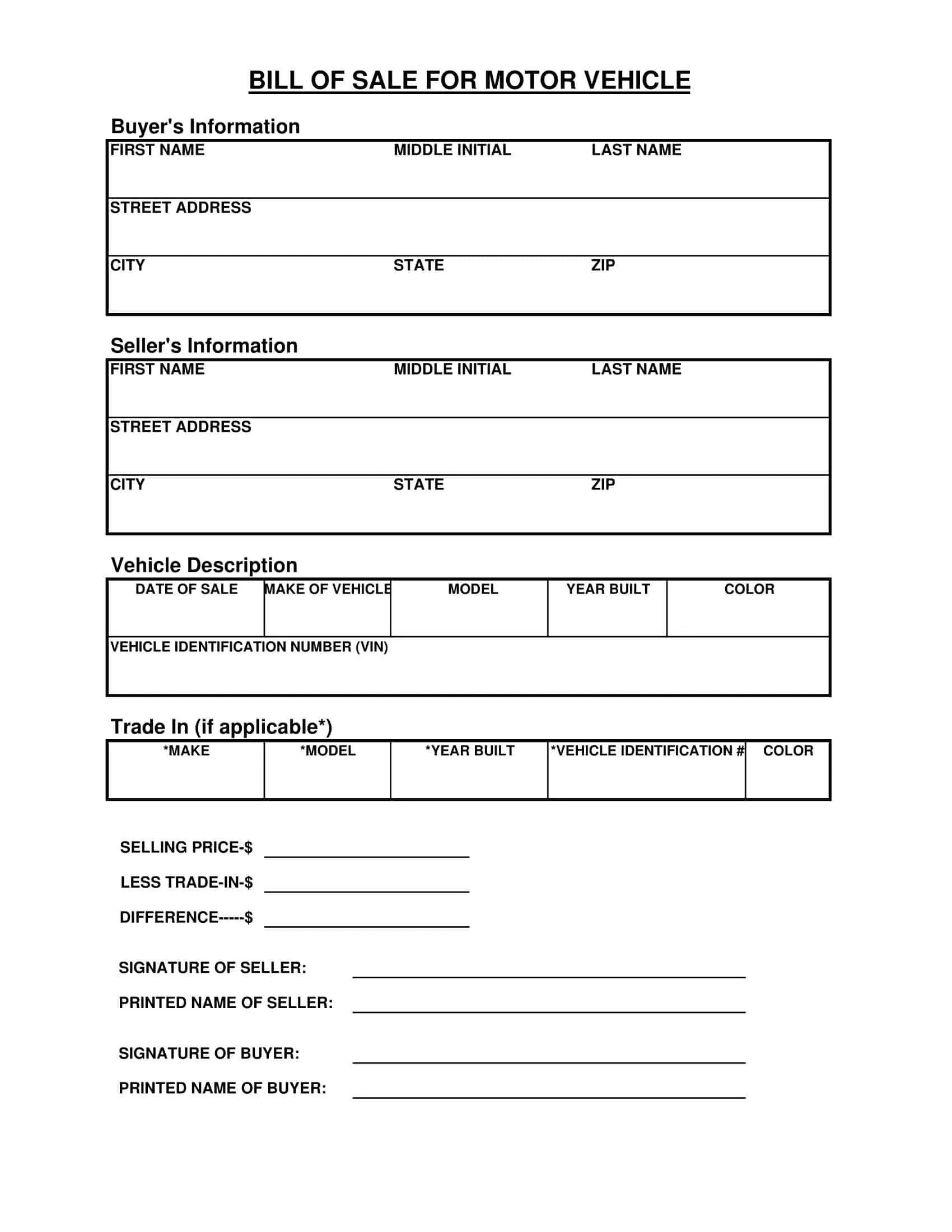




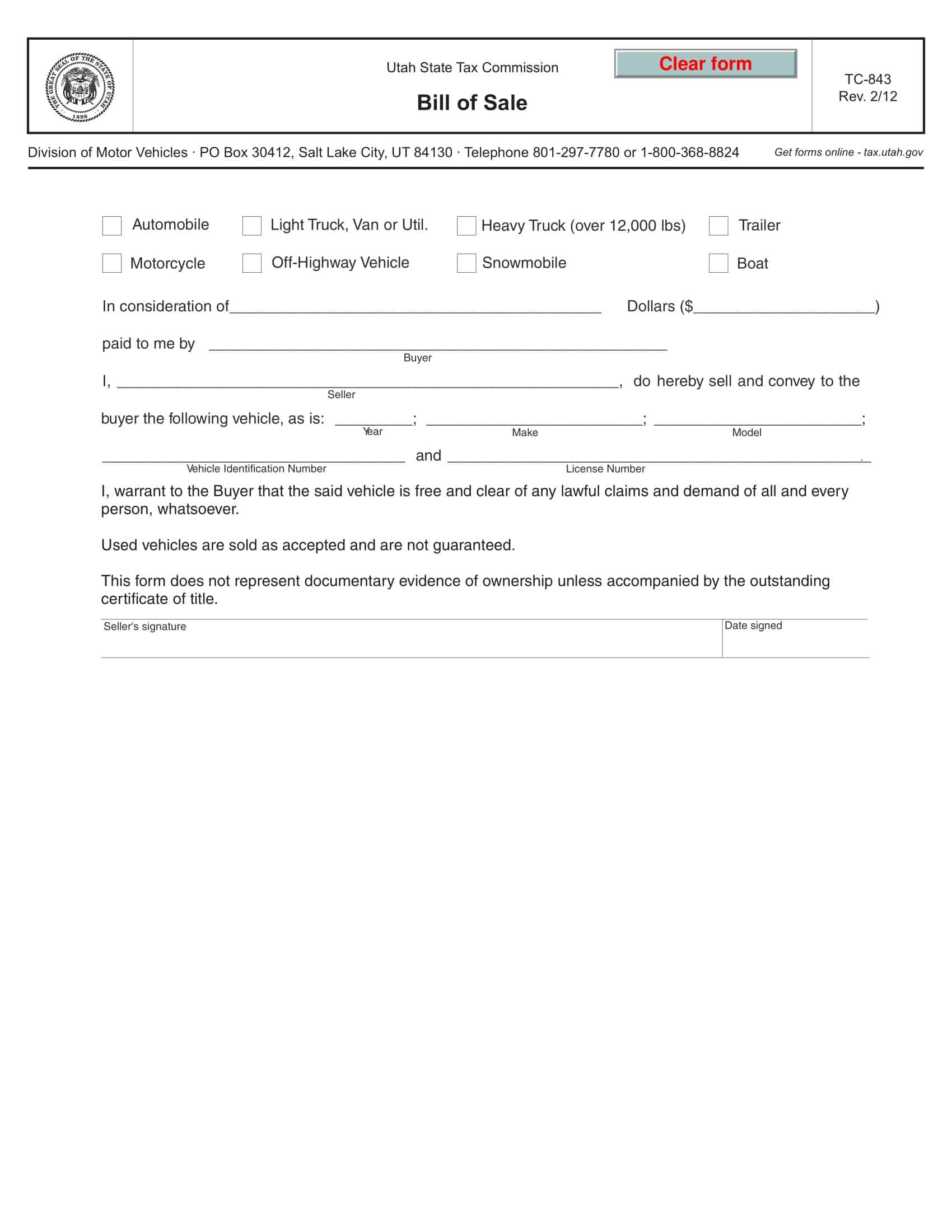



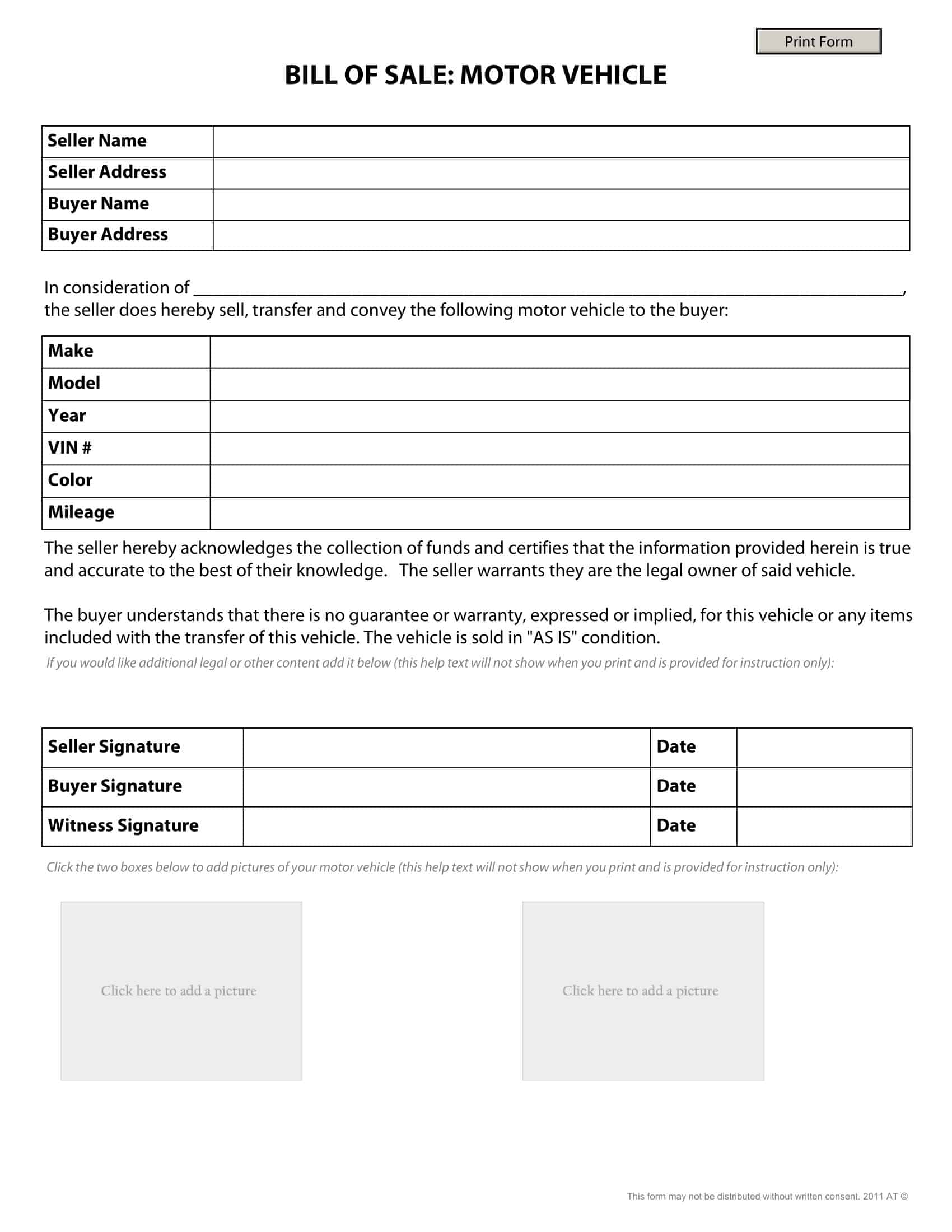

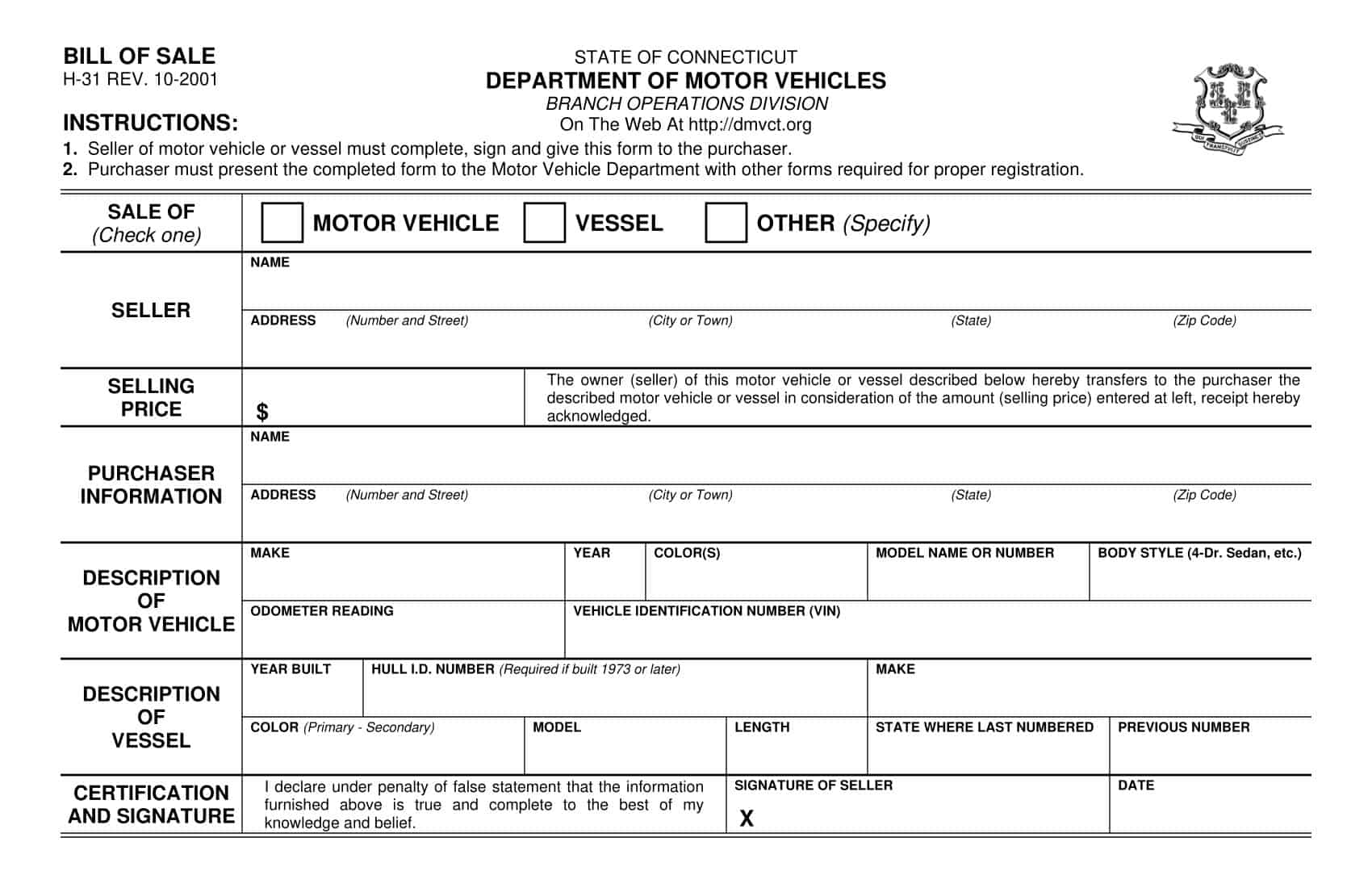
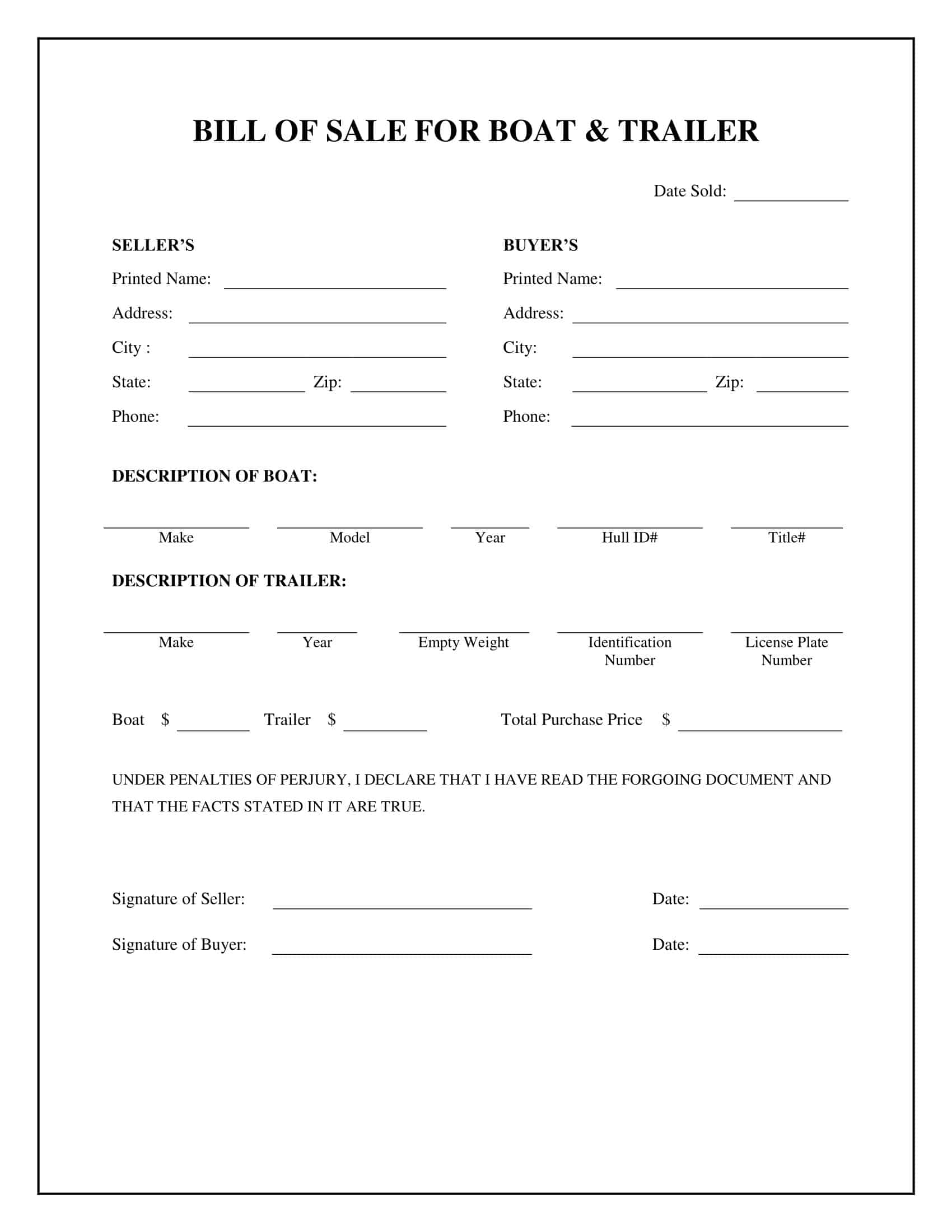


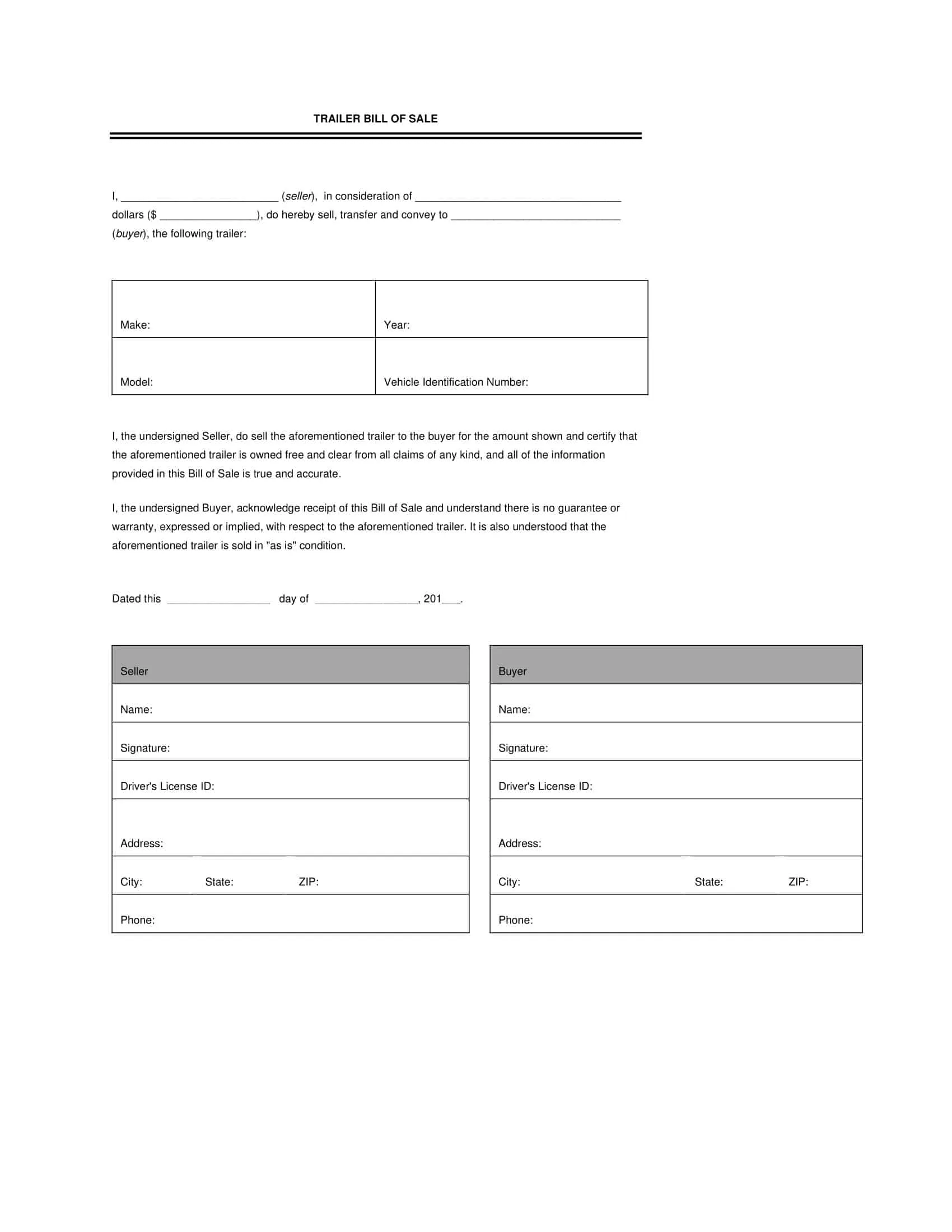

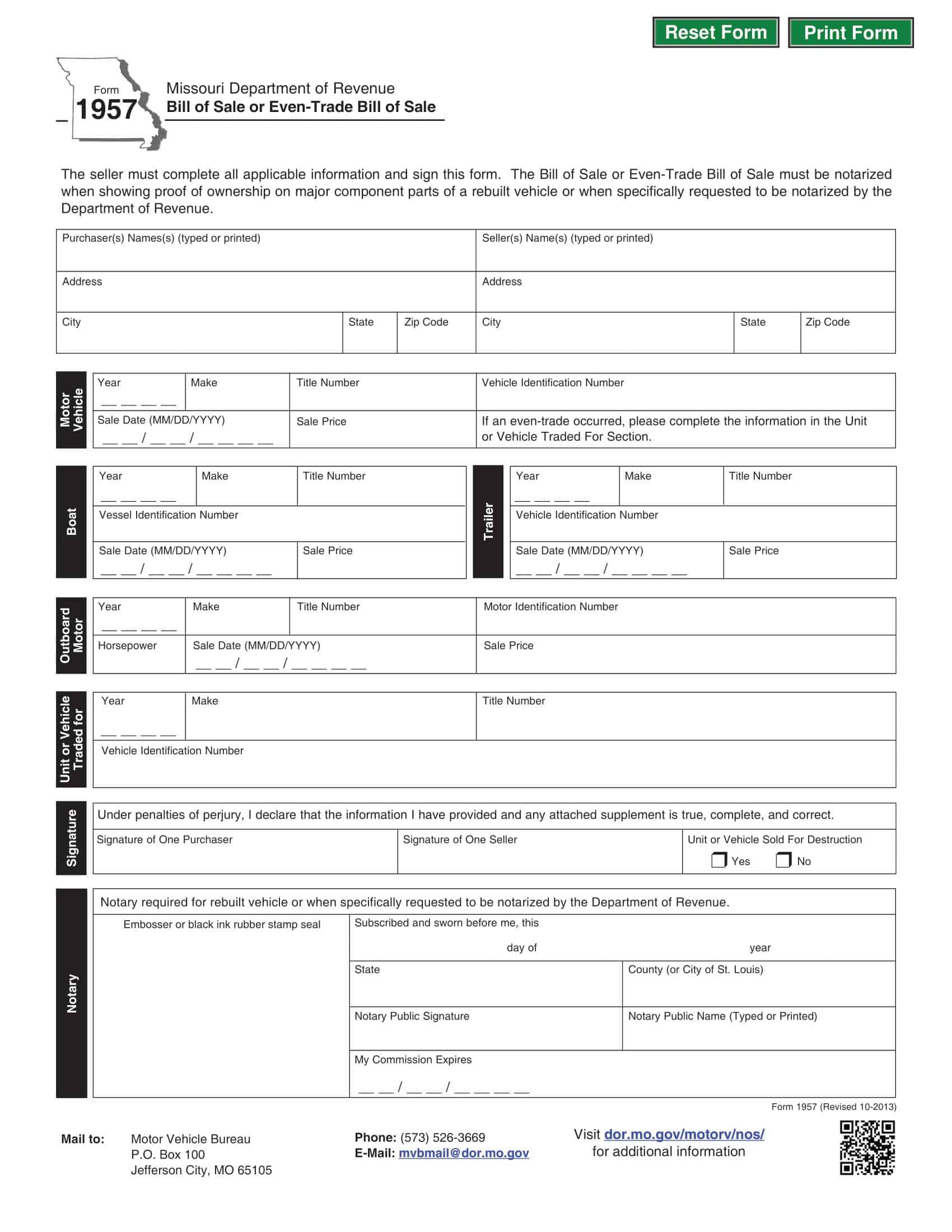

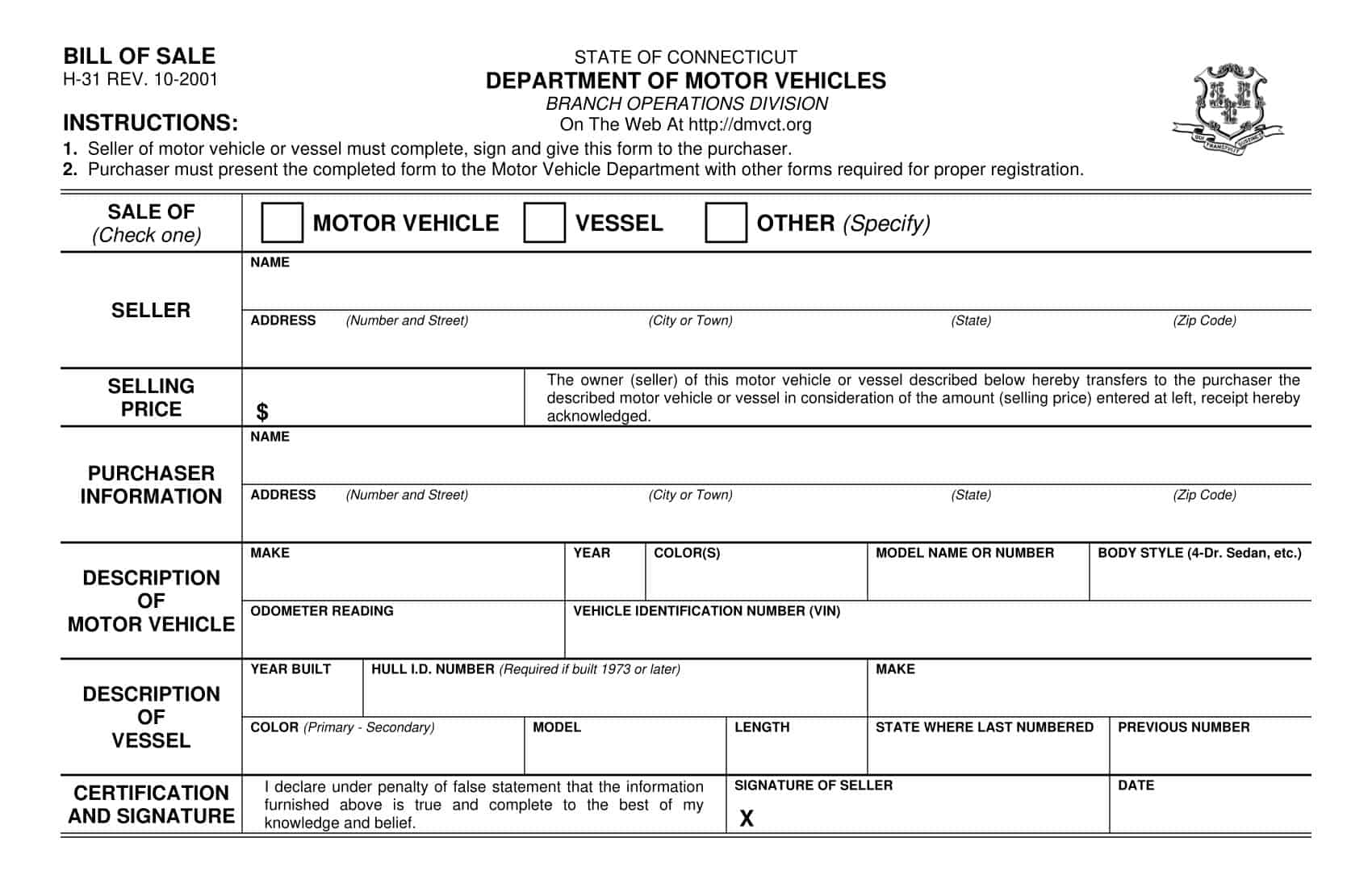




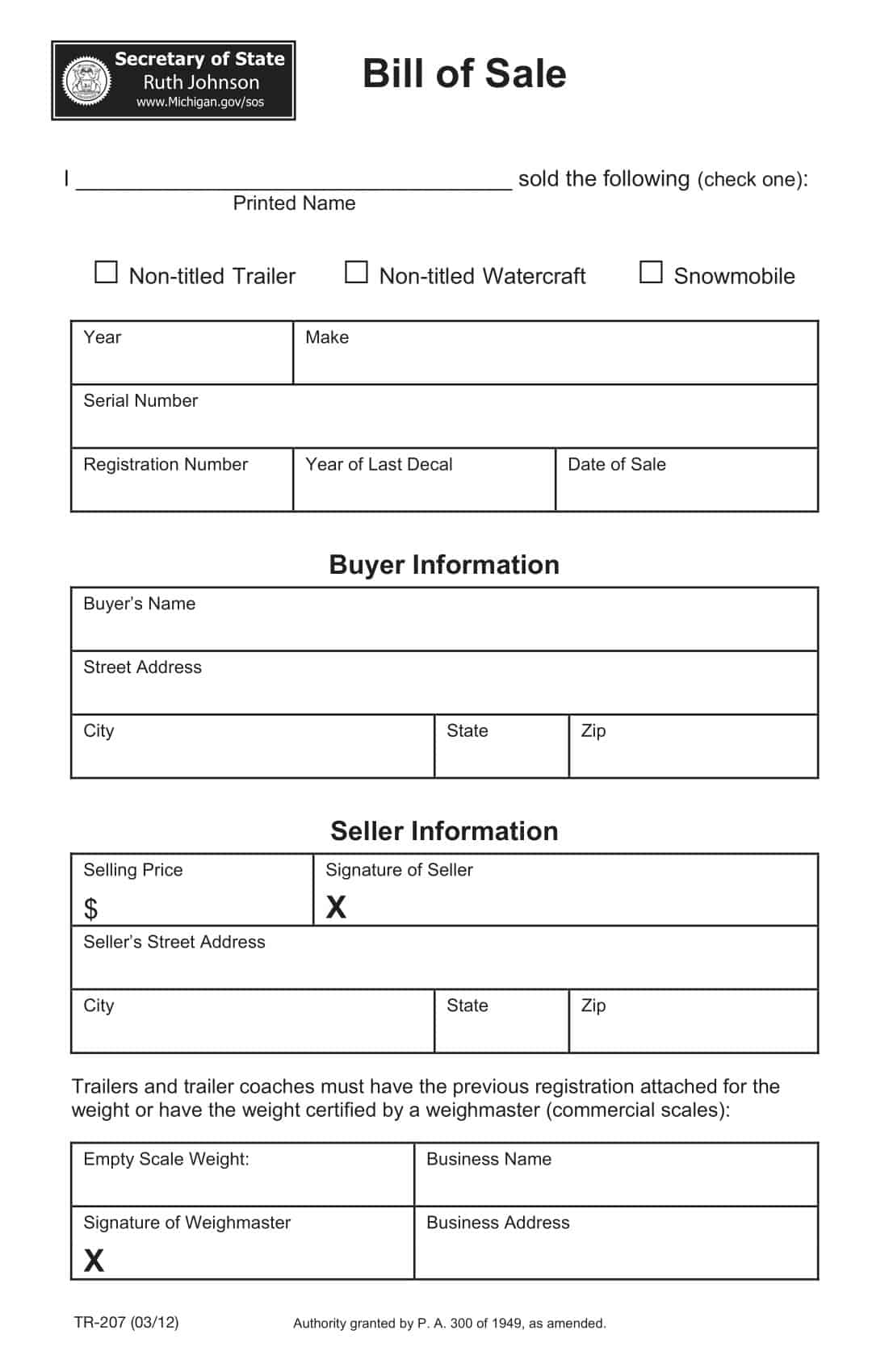
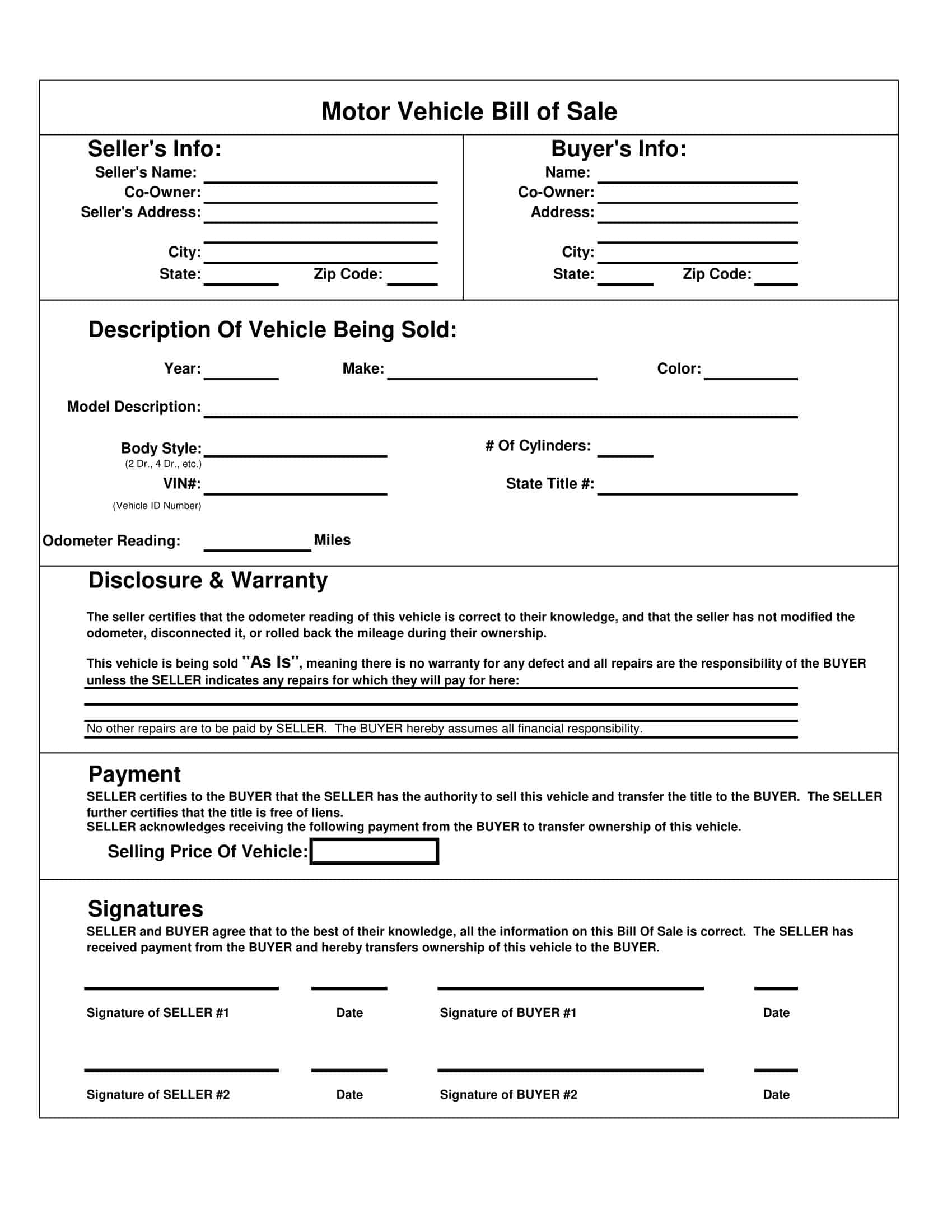




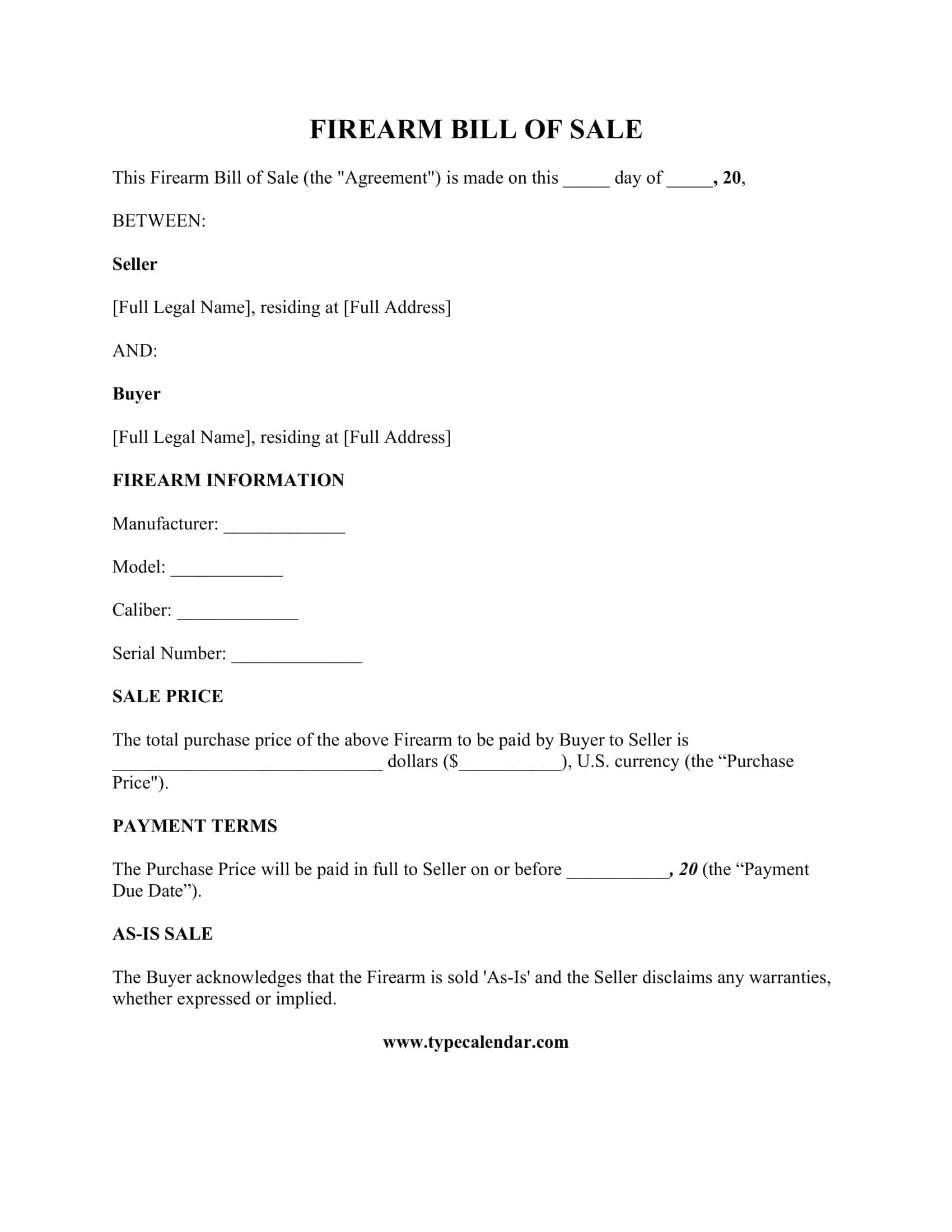


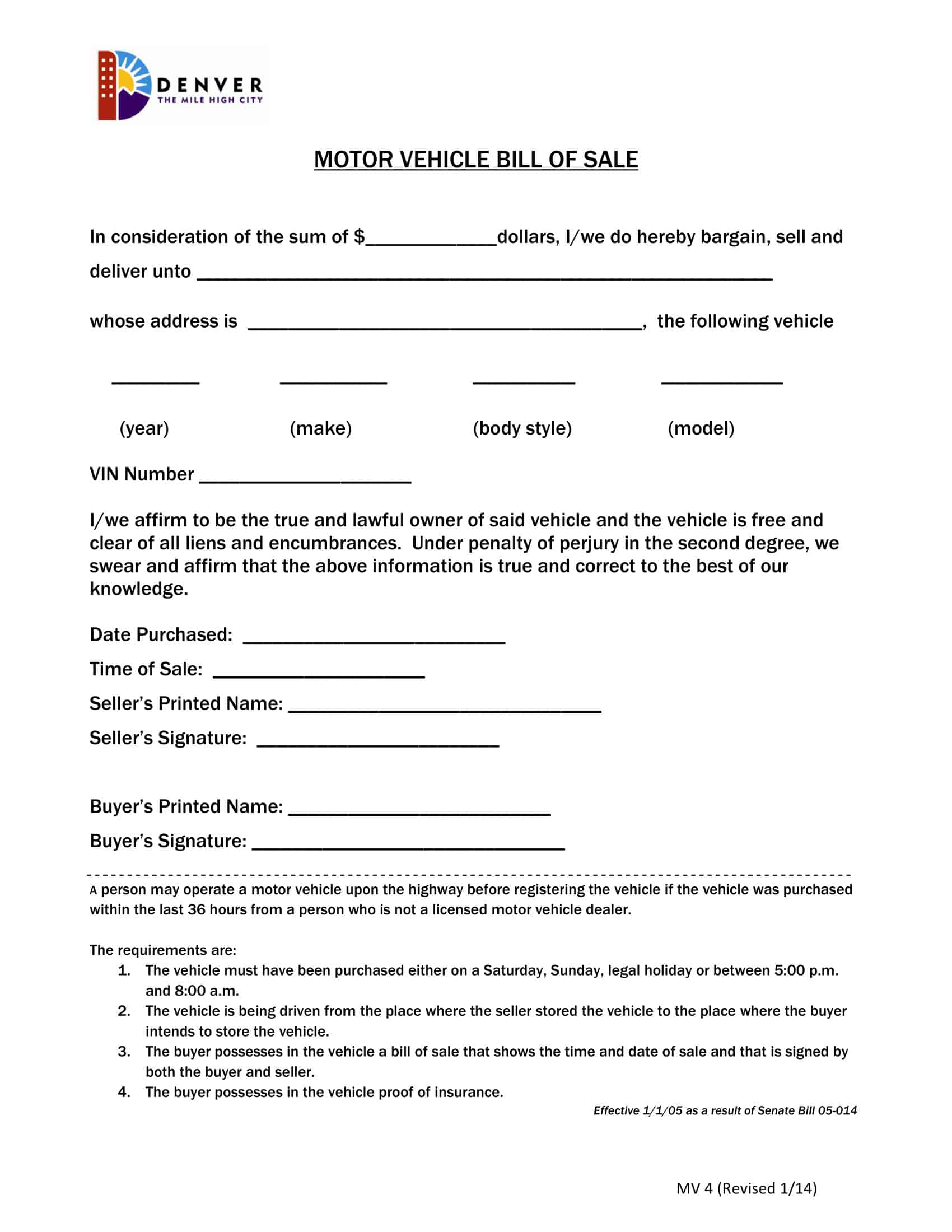




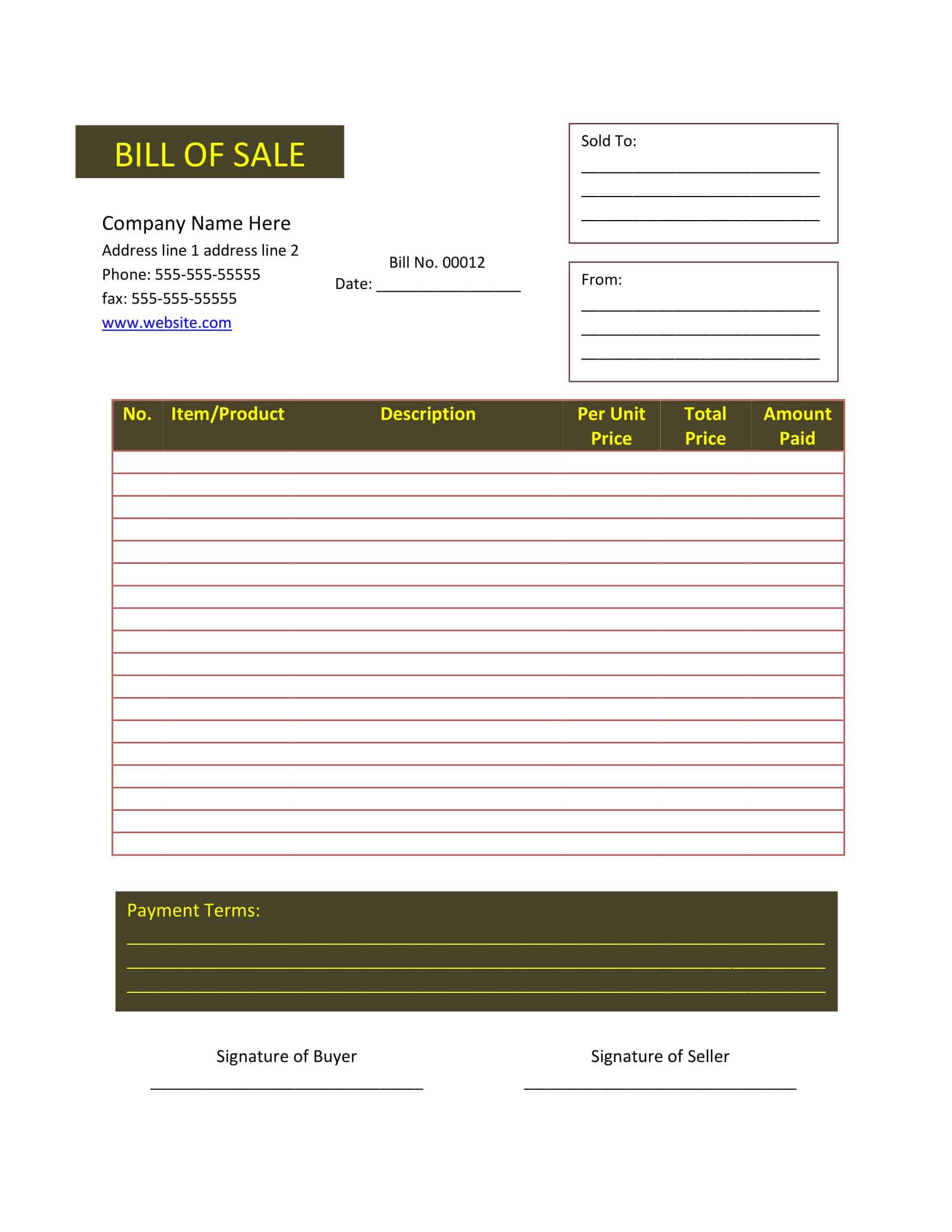

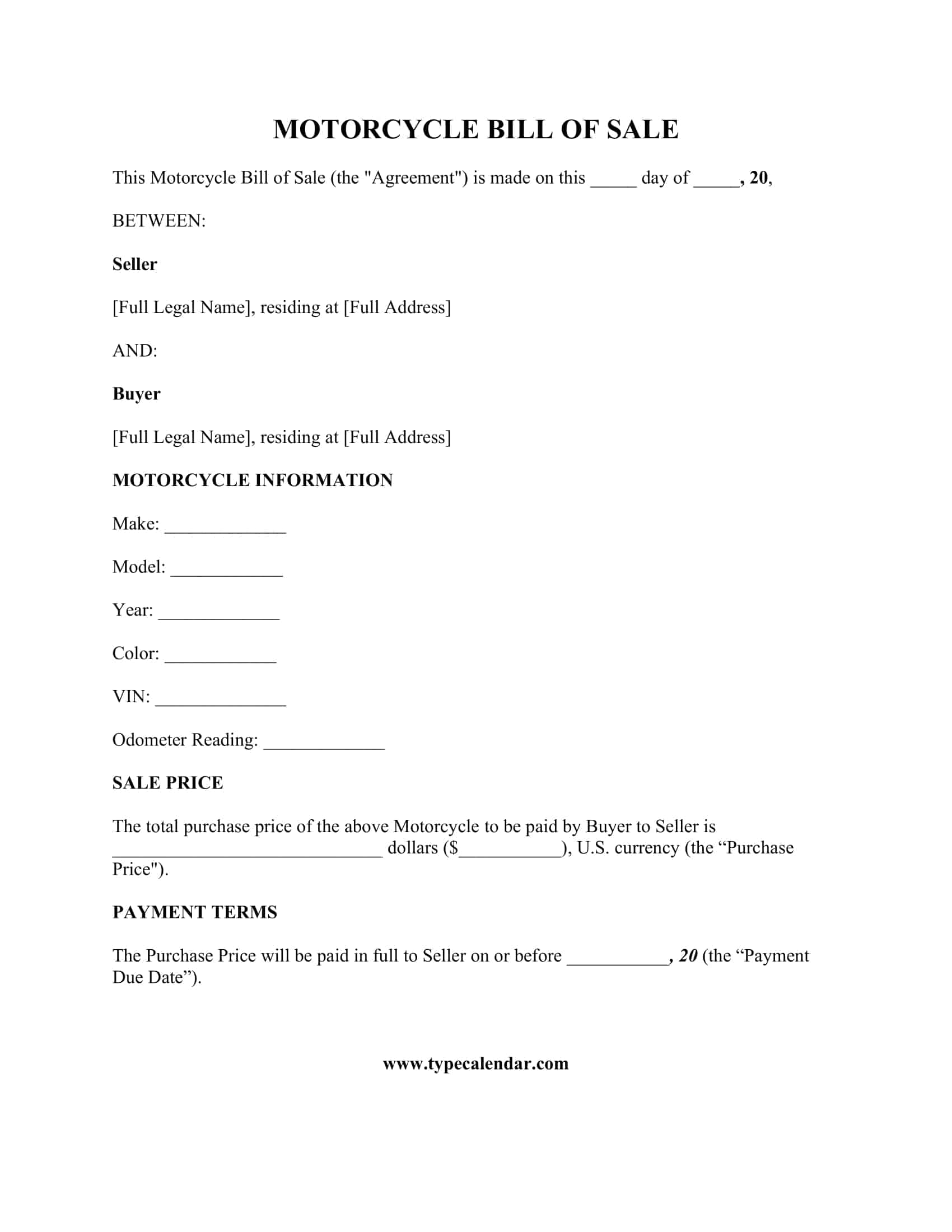

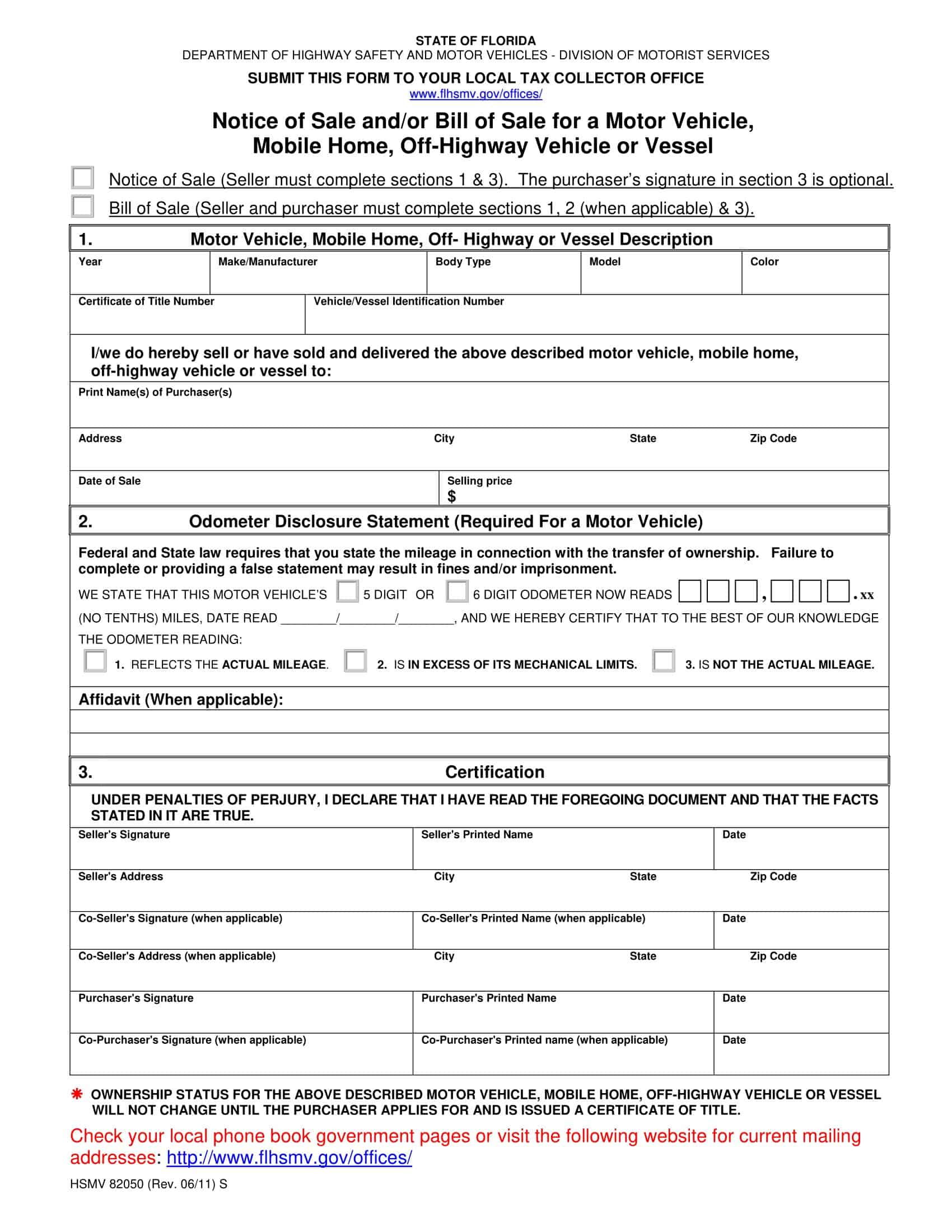
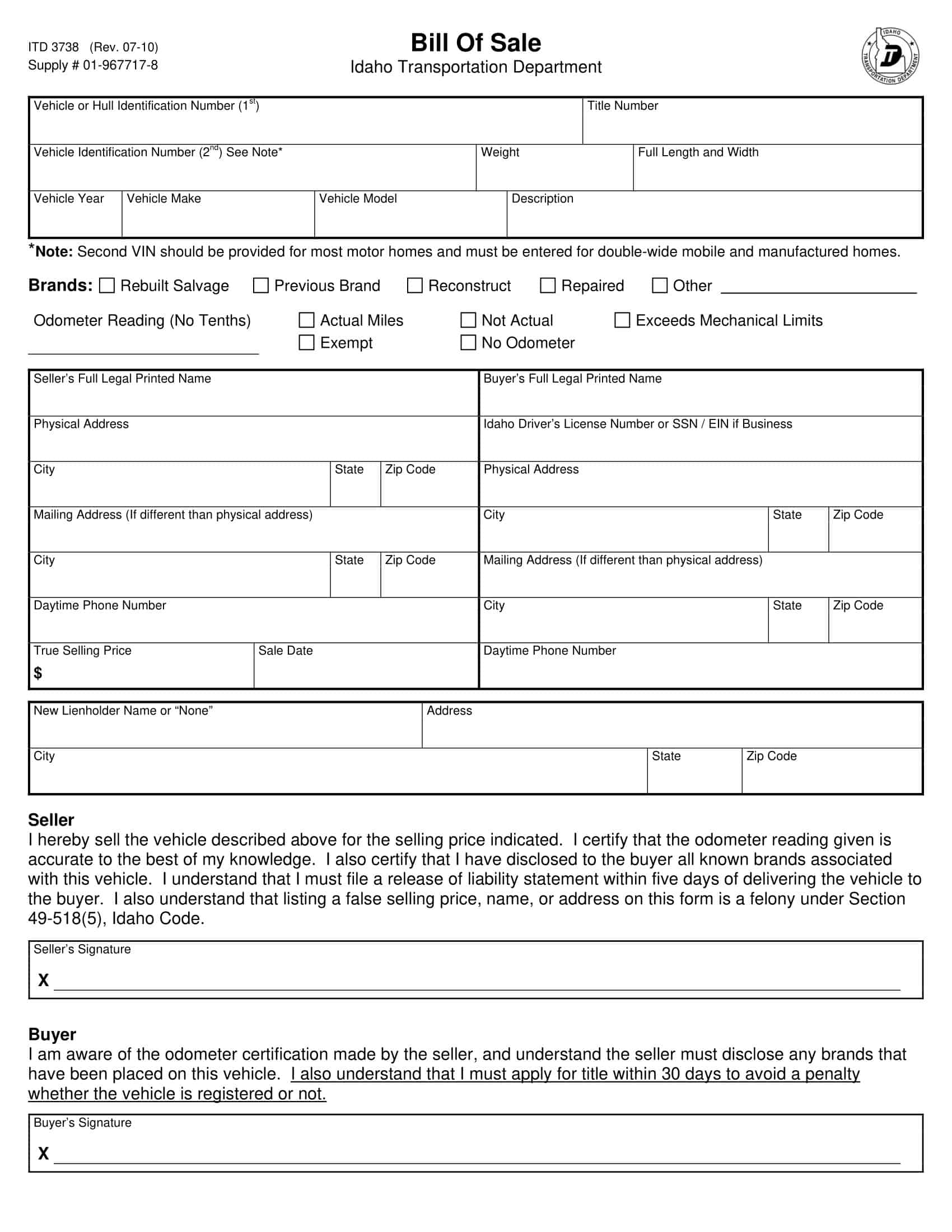
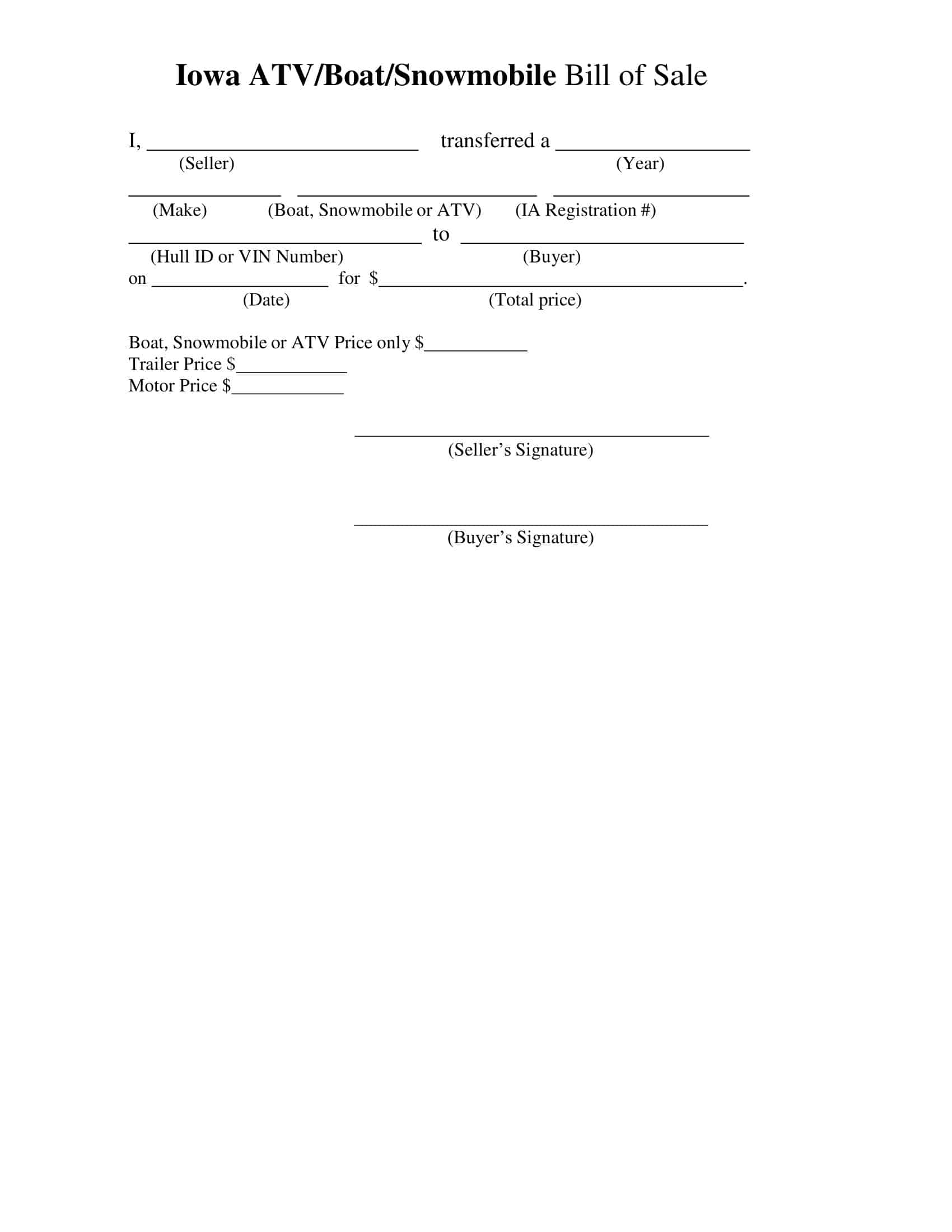
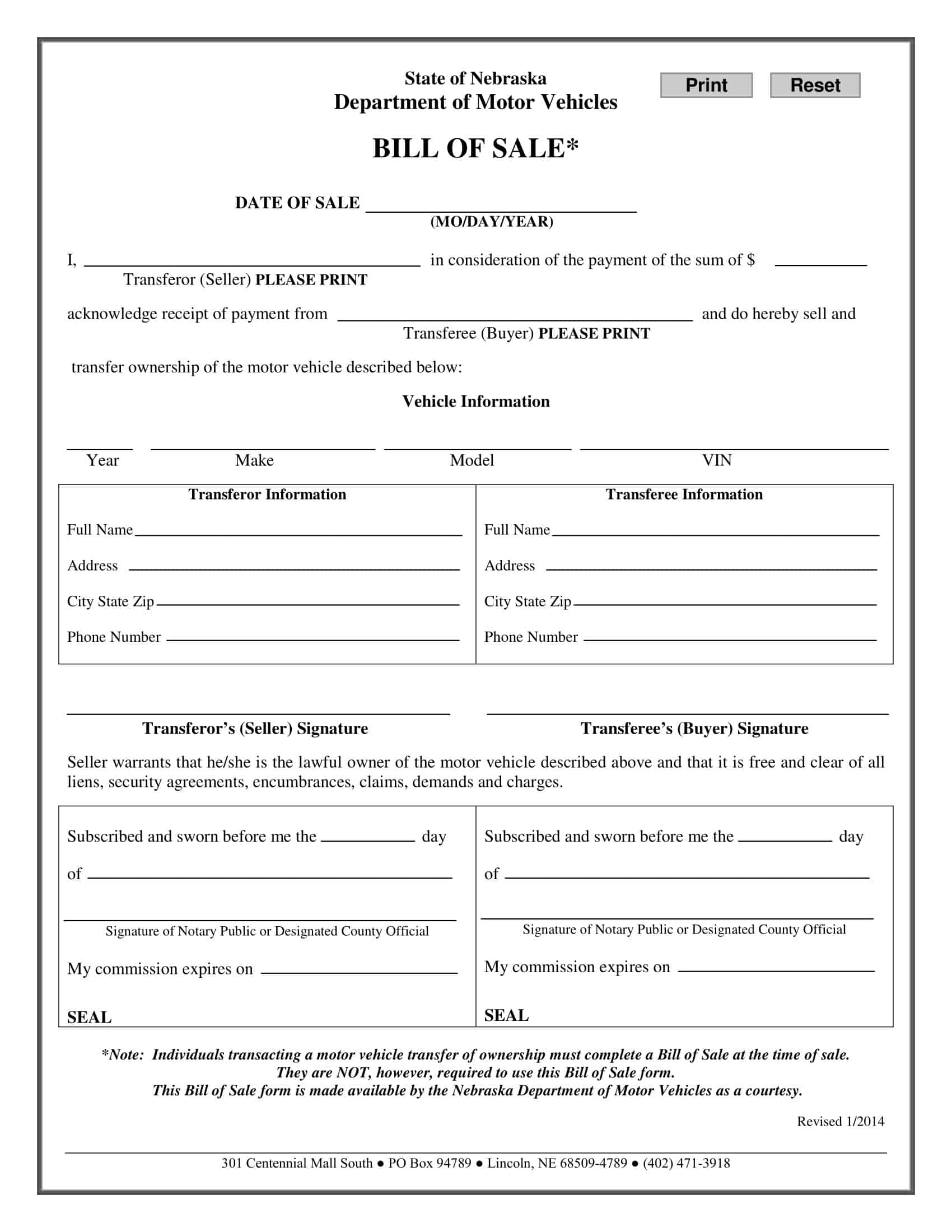
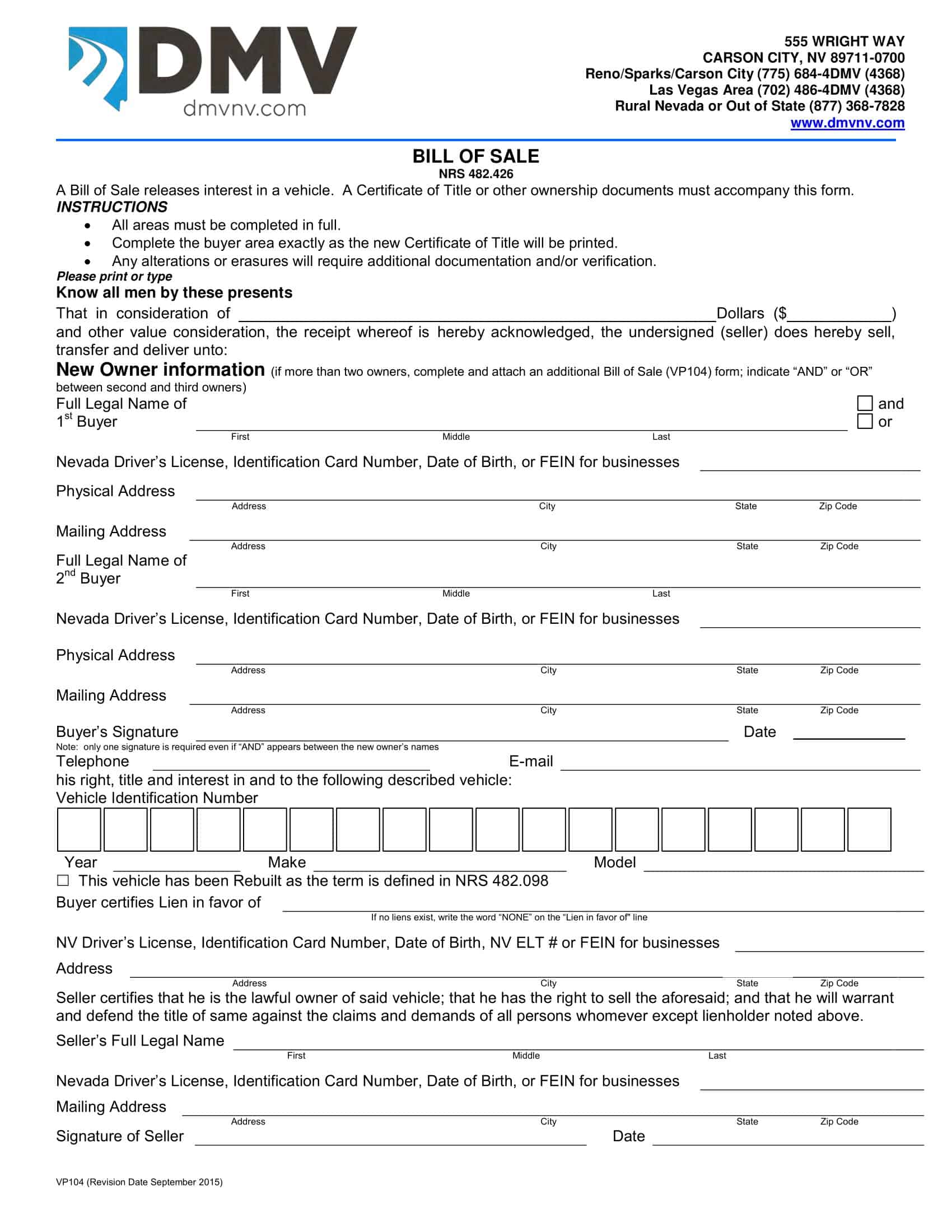
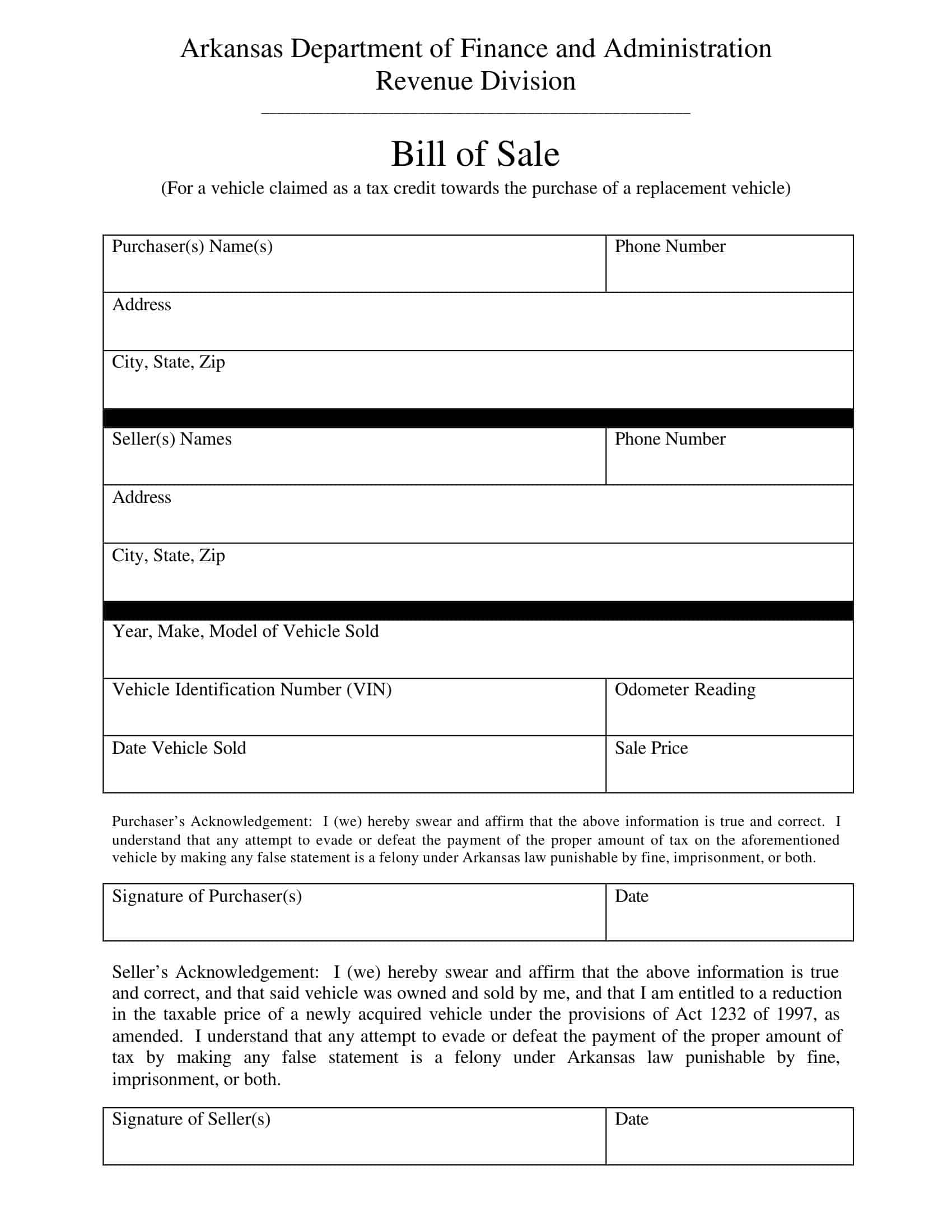
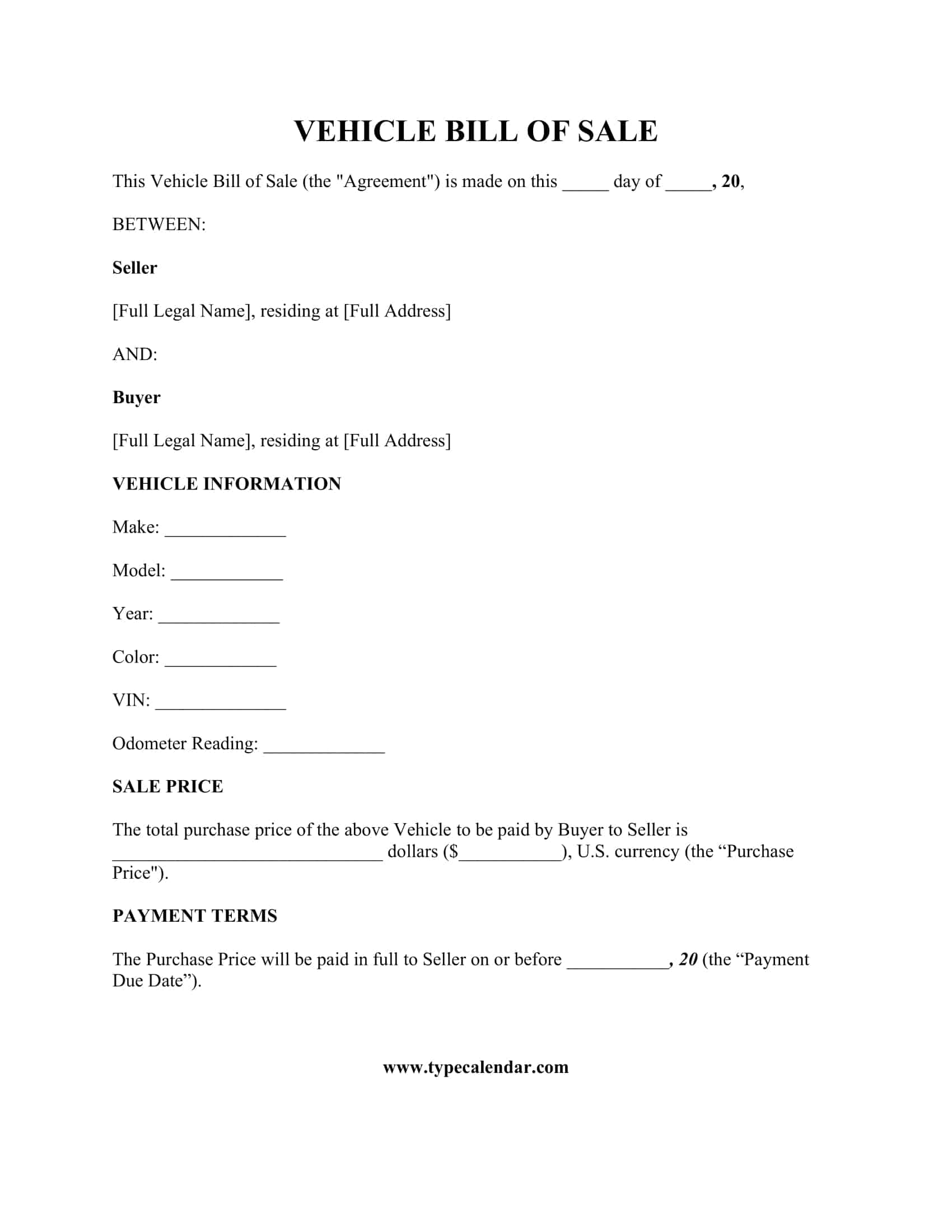
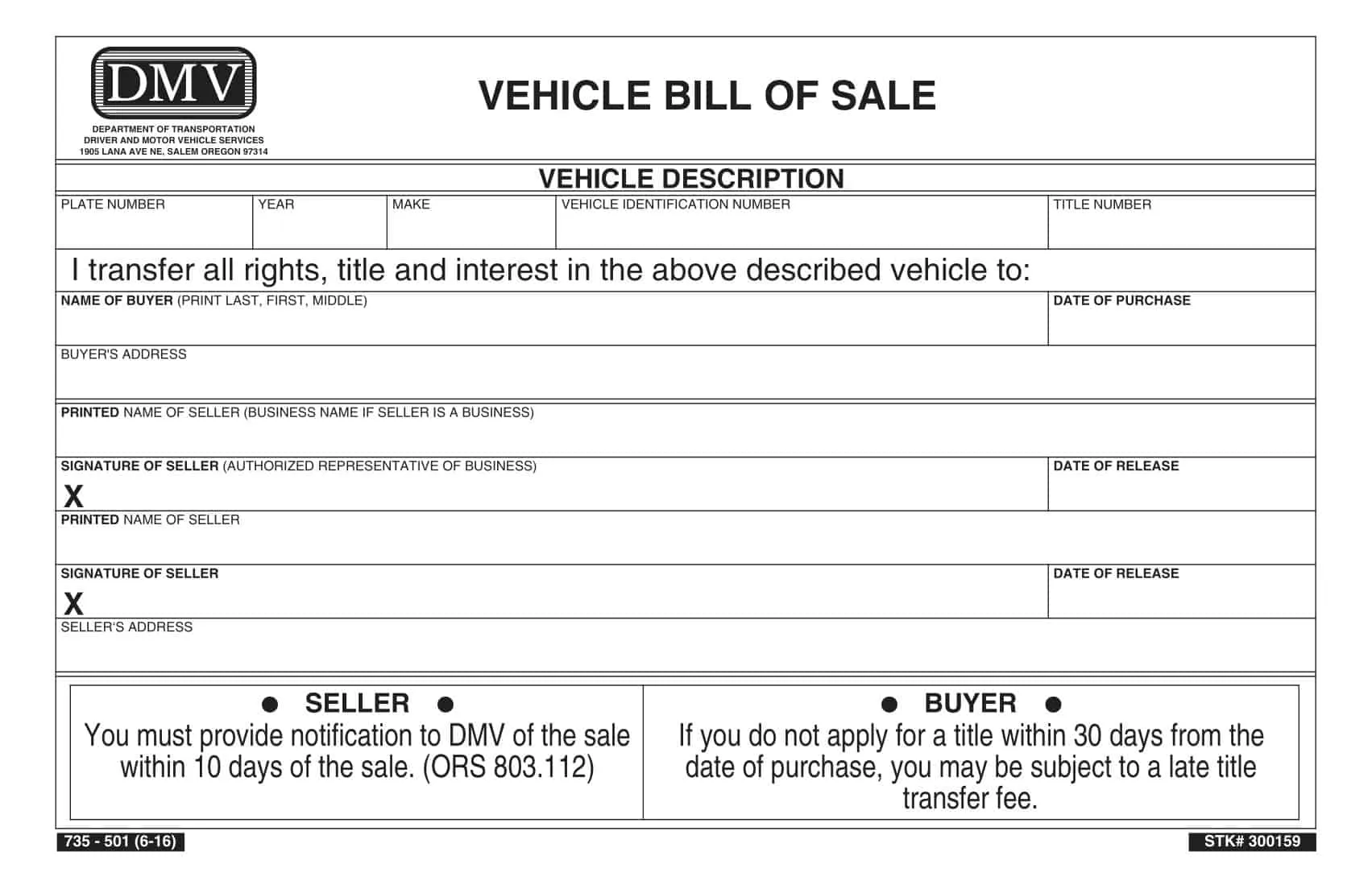
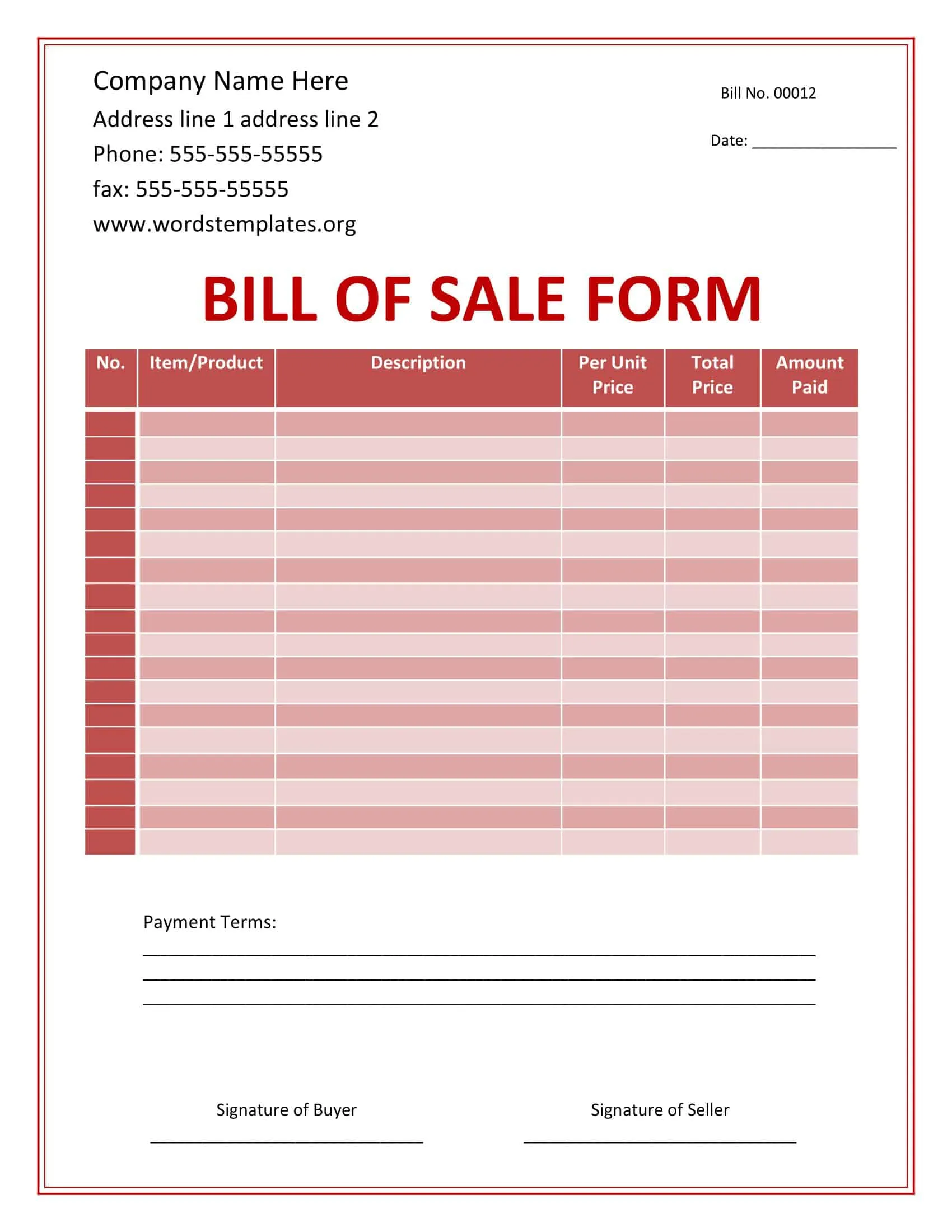
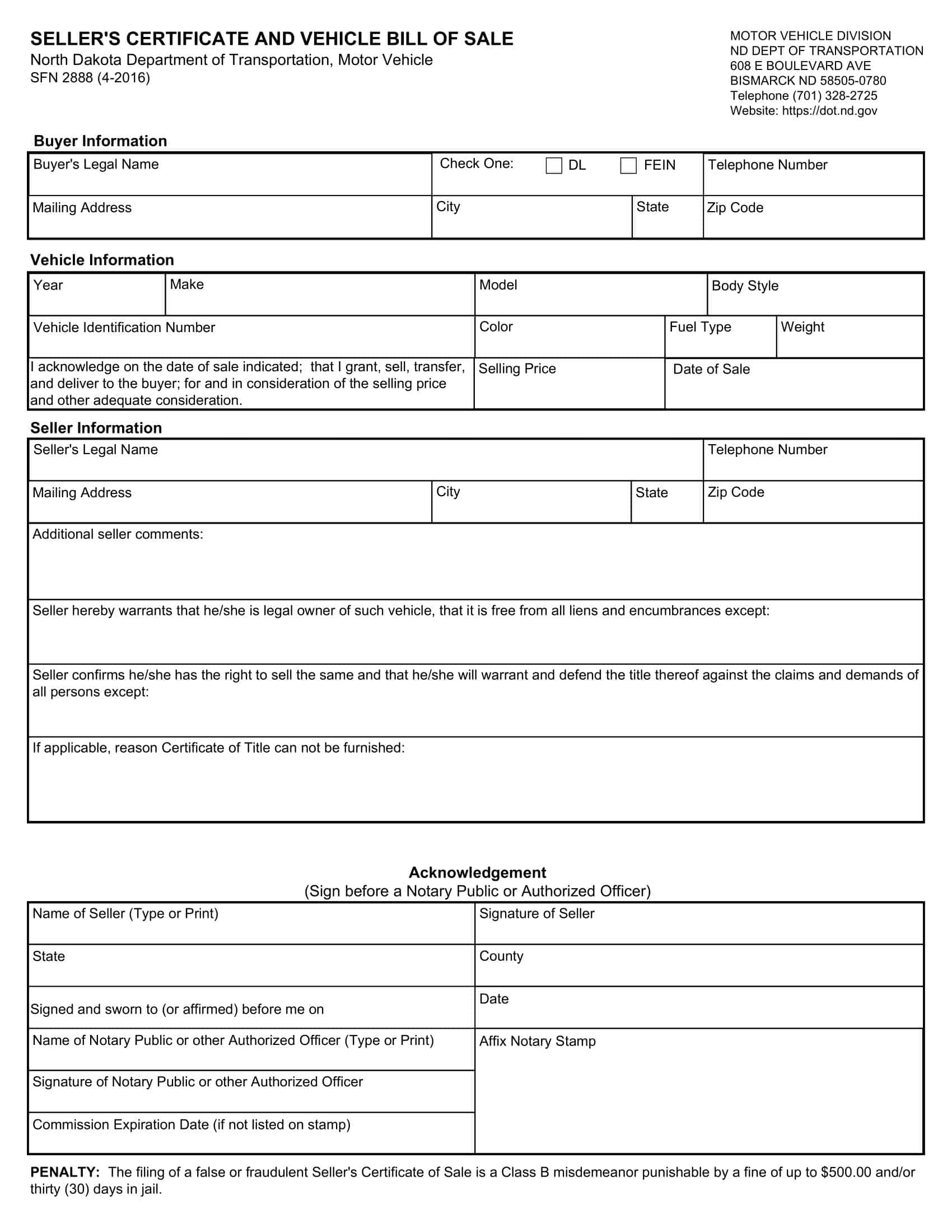
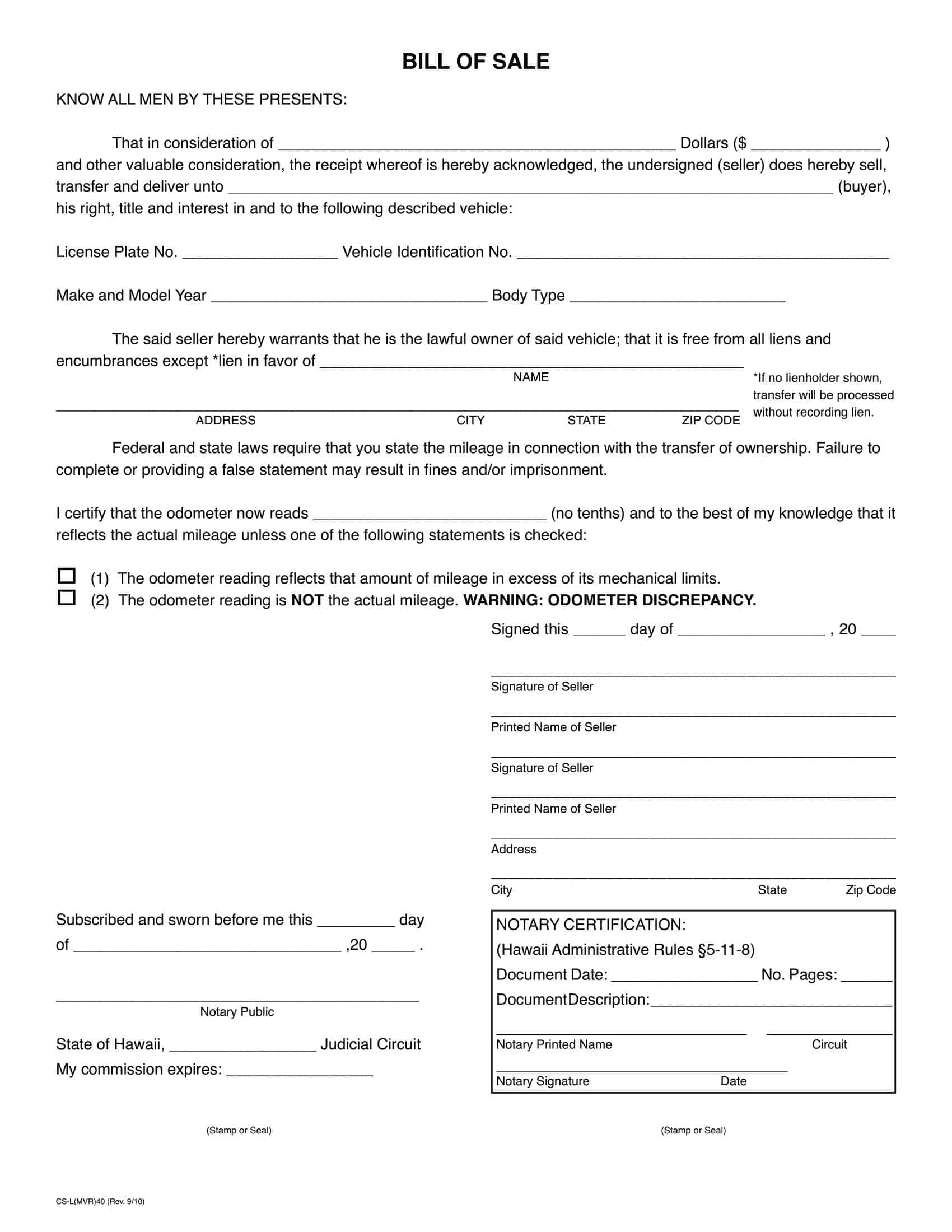
![Free Printable Roommate Agreement Templates [Word, PDF] 1 Roommate Agreement](https://www.typecalendar.com/wp-content/uploads/2023/06/Roommate-Agreement-150x150.jpg)
![Free Printable Credit Card Authorization Form Templates [PDF, Word, Excel] 2 Credit Card Authorization Form](https://www.typecalendar.com/wp-content/uploads/2023/06/Credit-Card-Authorization-Form-150x150.jpg)
![Free Printable Stock Ledger Templates [Excel,PDF, Word] 3 Stock Ledger](https://www.typecalendar.com/wp-content/uploads/2023/08/Stock-Ledger-150x150.jpg)
